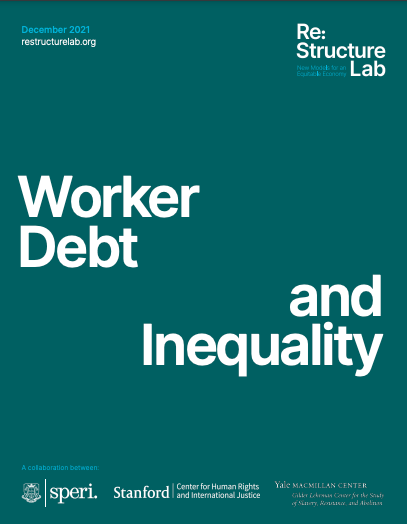Local Economic Resilience and Decent Local Work
Description
Employers in the community offer adequate opportunities for paid employment and fair compensation that allows residents to enjoy their right to a decent living for their families. Employees work reasonable hours and are able to enjoy appropriate access to leisure time and paid time off. Affordable, flexible, and culturally safe opportunities are available for families or individuals to access elder and childcare. Community members are typically able to work locally, due to companies’ local hiring and local procurement practices which support a resilient and diverse local economy that can support local employment needs. Migrant workers are compensated adequately, have appropriate access to leisure, suitable housing, and to social benefits and protections and their jobs do not disrupt local economic resilience. Worker displacement is low, and the community is organised to retain businesses, engage with local employers, and collaboratively minimise the impact of (mass) layoffs if they do occur. Opportunities for retraining/reskilling are available and accessible.
Share this Subissue on:LinkedIn
Resources
Sustainable Development Goal #8: Promote sustained, inclusive and sustainable economic growth, full and productive employment and decent work for all
The Sustainable Development Goals (SDGs) are a collection of 17 interlinked global goals that outline the path to creating a better and more sustainable future for all. This is a good hub for information, resources, and news on SDG #8, which focuses on sustainable economic development and decent work. It provides an overview with helpful infographics; information on targets, indicators, and progress; and features relevant publications and events.
Worker Debt and Inequality
This brief from Re:Structure Lab can help you to better understand how worker debt has become a critical, consistent element of business models configured around forced labour and human trafficking. The brief explains how supply chain workers are routinely paid at or below the minimum wage, oftentimes owing to wage theft, fraudulent deductions, predatory fees, and inadequate legal protection. It also explores solutions for addressing worker debt and inequality, such as alternative forms of corporate accountability mechanisms; reparations for historical injustice; debt relief; and more.
Exploring Youth Entrepreneurship
This report from the United Nations Department of Economic and Social Affairs can help you to better understand youth entrepreneurship as a mechanism for achieving the Sustainable Development Goals. It explains the challenges of youth in the Global South, as well as the importance of context and the role of the informal economy. It also features good practices to promote youth entrepreneurship as a way to maintain global employment rates and provide sustained livelihood opportunities to vulnerable groups.
Although specifically aimed at policymakers, this resource will be of benefit to professionals who want to advance local economic resilience and promote decent work in the regions they - or their value chain partners - operate.
Tackling inequality: The need and opportunity for business action
This short report is a good introduction to inequality, and can help you to better understand the responsibility and opportunity that your business has to support positive change. Developed by the Business Commission to Tack Inequality, the report explains how inequality is an urgent systemic risk for business, highlights the case for business action, and presents a six-part agenda for action.
The What Works Centre for Local Economic Growth
The What Works Centre for Local Economic Growth has created a range of resource to help make local economic growth policy more cost effective. These resources include an 8-step guide for improving the evaluation of policies and their impacts on local growth; topic pages that summarise what the evidence says about the impacts of different policies and activities on local growth; and a comprehensive guide and checklist that provides step-by-step advice, tips, and questions to support developing a logic model for a policy, programme or project.
Although primarily aimed at the public sector, these resources present evidence-based lessons and practical questions that will support decision makers looking to collaborate in advancing local economic growth.


